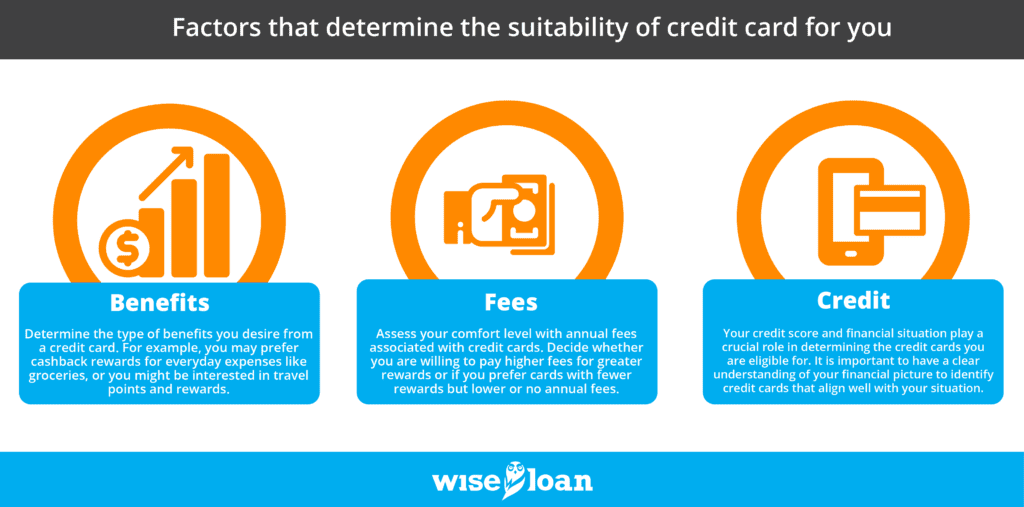Although many people associate having multiple credit cards with credit card debt, when used strategically, they can actually serve as a beneficial tool for enhancing your credit score. According to reports, the average American consumer possessed approximately 3.84 credit card accounts in 2020. To gain a better understanding of how multiple credit cards can impact your credit score and effectively plan your credit card usage, continue reading.
How Many Credit Cards Should I Have to Build My Credit Score?
Determining the ideal number of credit cards to boost your credit score is not a one-size-fits-all situation; it varies based on your individual financial circumstances. Some individuals prefer to rely on a single credit card because consistently using and paying it off is a straightforward method for improving their credit score.
While having only one credit card does not result in any penalties on credit reports, incorporating additional cards can subtly impact your credit score in a positive manner. Multiple credit cards offer various advantages, such as earning diverse cashback or travel credit rewards, and serving as backup options during emergencies or in case of compromised cards.
What is a Credit Score?
A credit score is a numerical representation, ranging from 300 to 850, that reflects an individual’s creditworthiness. It is determined by analyzing information about your past credit behavior and current financial situation. Higher credit scores indicate a greater level of confidence among lenders and creditors regarding your ability to make timely payments. Improved credit scores can result in more favorable credit terms, including lower interest rates and payments.
How Multiple Credit Cards Affect Your Credit Score
Multiple credit cards can have an impact on your credit score, as it considers various factors and patterns related to your credit behavior. Let’s explore a few ways in which having multiple credit cards can influence your credit score.
Credit Utilization
Your credit utilization ratio, also known as the debt ratio, represents the percentage of your total available credit that you are currently using. Credit scoring models consider both your overall credit utilization ratio across all forms of credit and the utilization ratio of individual credit cards when calculating your credit score.
Adding additional credit cards can increase your overall credit limit, resulting in a lower credit utilization rate. It is recommended to maintain a credit-utilization ratio below 30%. For example, if you have one credit card with a $1,000 limit, your balance should not exceed $300. However, if you have two credit cards, each with a $1,000 limit, you can distribute up to $600 between them while still maintaining the 30% overall utilization.
Length of Credit History
It is another important factor. Lenders place more trust in established credit history compared to newer credit. A long and stable credit history demonstrates reliability and trustworthiness. If you close an old credit card to open a new one, it may negatively impact your credit score as the old credit is no longer factored into your credit report. By keeping both cards, your report considers the average age of all your credit accounts. While opening new credit card accounts may lower the average age, the negative consequences are generally fewer than closing an old card for a new one.
This can be advantageous if you desire new cards for their rewards or perks while finding the terms of your old credit card outdated. In some cases, you may be able to negotiate a no-fee version of the old card, allowing you to keep the account without incurring any costs.
Payment History
Your payment history plays a significant role in determining your credit score. Making timely bill payments consistently has a positive impact on your score, while late payments can harm it and portray you as a risky borrower. Credit reports assess account penalties such as late payments, the frequency of late payments, and the recency of your latest delinquency. Therefore, it is crucial to pay your credit card bills on time when you have multiple credit cards to maintain a good credit score.
Account Diversity
Account diversity refers to the presence of different types of accounts and debt on your credit report. Having a diverse range of accounts can potentially improve your credit score. Installment debt includes fixed payment accounts like personal loans, mortgages, and auto loans while revolving debt refers to loans and credit cards with variable payments.
While account diversity is not a major factor in your credit score calculation, adding credit cards may positively impact your score if most of your accounts are installment debts. However, if the majority or all of your accounts are revolving debts, adding another credit card is unlikely to have a significant effect on your credit score.
Risks of Multiple Credit Cards
Effectively utilizing multiple credit cards to build your credit is advantageous, but it requires meticulous management and careful monitoring of each account. Failing to do so can potentially harm your credit score more than if you had stuck with just one card. It is crucial to be aware of the risks associated with having multiple credit cards and to follow these tips for proficiently managing your credit cards.
New Credit Risk
Engaging in numerous credit applications and inquiries or rapidly opening new accounts can have a detrimental impact on your credit score. While a single application or account every six months or longer typically does not harm your credit score, excessive activity within a six-month period can raise concerns among creditors and lenders, signaling that you may be a risky applicant.
Maxing Out Cards
It is important to note that having multiple credit cards does not mean you should utilize them to their maximum limits. Utilizing 90% or more of your credit limit for each card or across your overall available credit can lead to significant negative consequences for your credit score. It is advisable to maintain a low credit utilization by paying off your credit card balance before the end of the statement period and striving to keep your balance as close to $0 as possible. If you have a tendency to overspend, relying on multiple credit cards may not be the most suitable credit-building strategy for you.
Late Payments
Failing to meet the minimum payment requirements can result in substantial and enduring negative consequences for your credit card. It is essential to stay organized and keep track of your due dates while ensuring that you do not exceed your financial capacity, allowing you to pay off each balance in full on a monthly basis. Setting up automatic payments can serve as a reliable method to prevent late payments.
Multiple Fees
Numerous credit cards often entail opening and annual fees, and these expenses can accumulate rapidly when you have multiple cards. While it may not be feasible in every situation, there is a possibility of negotiating with credit card issuers to obtain more favorable terms, such as eliminating or reducing annual fees.
Choosing Multiple Credit Cards
If you are prepared to enhance your credit score using multiple credit cards, it is essential to consider various factors that determine the suitability of each card for you. These factors include:
- Benefits: Determine the type of benefits you desire from a credit card. For example, you may prefer cashback rewards for everyday expenses like groceries, or you might be interested in travel points and rewards.
- Fees: Assess your comfort level with annual fees associated with credit cards. Decide whether you are willing to pay higher fees for greater rewards or if you prefer cards with fewer rewards but lower or no annual fees.
- Credit: Your credit score and financial situation play a crucial role in determining the credit cards you are eligible for. It is important to have a clear understanding of your financial picture to identify credit cards that align well with your situation.

If you are eager to optimize your credit score, Wise Loan can provide you with further information on how to get started and maximize the benefits of your credit cards. Contact them for valuable insights and guidance.
The recommendations contained in this article are designed for informational purposes only. Essential Lending DBA Wise Loan does not guarantee the accuracy of the information provided in this article; is not responsible for any errors, omissions, or misrepresentations; and is not responsible for the consequences of any decisions or actions taken as a result of the information provided above.











